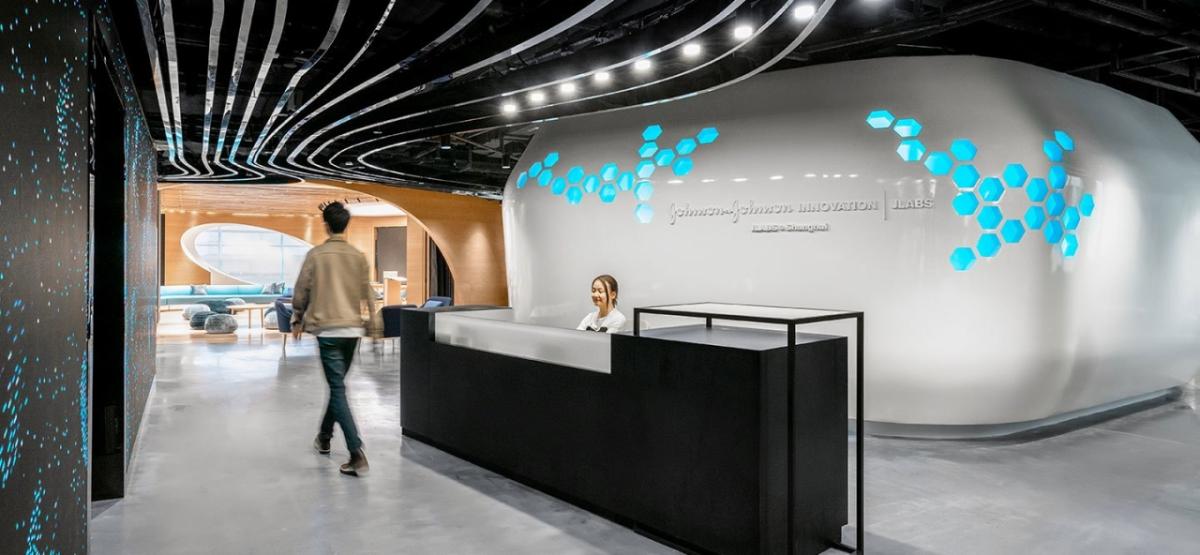JLABS @ Shanghai: The Innovation Hub That's Poised to Shake Up the Healthcare Start-Up Scene in Asia
By Nicole Frehsee Mazur

Originally published on JNJ.com
That’s how many people live in China. And that number jumps to 4.3 billion for the countries that make up the Asia-Pacific region, including China and India.
It’s not surprising then that, with 60% of the world’s population livingin the region, there are challenging health issues to tackle, such as spikes in such chronic diseases as cancer, diabetes and neurodegenerative conditions like dementia.
But there's now a powerful new resource for healthcare innovation in the region that's specifically aimed at tackling some of these medical problems: JLABS @ Shanghai, the latest healthcare incubator from Johnson & Johnson Innovation, JLABS, and its first outpost in Asia.
We sat down with Sharon Chan, Head of JLABS @ Shanghai, to learn about the strategic direction of the exciting new innovation hub that's poised to help scientists and entrepreneurs develop and market cutting-edge products and technologies that have the potential to propel healthcare forward not just in Asia but around the world.
Q: Why Shanghai?A: The Asia-Pacific region is emerging as a powerhouse for early-stage innovation, and China, specifically, has a role to play. Not only does it have the world’s second-largest economy and pharmaceutical market, but the healthcare venture capitalist landscape has grown exponentially in China.
Shanghai itself has the country’s highest concentration of medical research and development resources, from science parks and universities to medical schools—all of which contribute to a significant talent pool. Plus, it's an emerging hot spot for life science innovation; we’re seeing a lot of companies popping up in areas related to gene therapy, regenerative medicine, the microbiome and artificial intelligence.
We also chose the city because we have strong support from the Shanghai Municipal and Pudong New Area governments and are impressed with how much they are investing in biotechnology, innovation and healthcare.
The part we can play is to help start-ups translate basic research into commercially viable healthcare solutions by providing these entrepreneurs with the resources needed to help transition their great idea into a great product.
We’re located across the corridor from the scientists working at the Shanghai Discovery Center of Janssen China Research and Development, part of the Janssen Pharmaceutical Companies of Johnson & Johnson. The teams there focus on research programs dealing with small-molecule drug discovery, biomarkers and clinical trials for hepatitis B, lung and blood cancers. And we’re just hundreds of feet away from ShanghaiTech University. All of this serves to nurture an ecosystem that brings together innovators to address rapidly evolving healthcare needs.
Q: What’s your vision for JLABS @ Shanghai?A: We want to help address the growing healthcare needs of the region, and by being close to the patients, we are better positioned to do just that. Lung cancer is the leading cause of cancer death in China, with more than 700,000 deaths each year—so that will be an important initial focus, but not the only one.
We’re looking for the best and brightest talent working on the most disruptive and game-changing science. This could include oncology, immunology, neuroscience and cardiovascular and infectious diseases.
Q: How many start-ups will you support at JLABS @ Shanghai and how?
A: There will be more than 50 companies with yearlong residencies here that will have access to offices, open workstations and concept and chemistry labs outfitted with centrifuges, specialized microscopes, 3-D printers and flow cytometers that help with advanced cell analysis.Some resident companies will consist of solo entrepreneurs who are just getting started, while others have an overseas presence but are using JLABS @ Shanghai as a launching pad in China. We’ve gotten applications from interested entrepreneurs in Hong Kong, Taiwan, Singapore, Canada and the U.S., to name a few. One company, for example, is using 3-D printing to help with wound healing, while others are targeting treatments for Alzheimer’s and cancer.
Our goal is to guide entrepreneurs through the early stages of business, so in addition to providing workspace and R&D infrastructure, we also offer mentoring on topics ranging from legal and regulatory issues to HR and strategy. We even provide access to venture capitalists who will come in and do open hours for our resident companies.
And while we help support the start-ups, each company retains their own intellectual property, which lets them maintain complete freedom.
We want to help entrepreneurs so that they can focus on what they do best—their science. But whatever the company's emphasis, JLABS provides an environment in which they can focus on innovation.
Q: What are you most excited about?A: I can’t wait to see how entrepreneurs from different countries and backgrounds come together to inspire each other.
We will have serial entrepreneurs who've bought and sold successful biotech companies working next to entrepreneurs coming straight out of university. This diversity is going to drive so much learning and so many truly amazing opportunities to help transform healthcare in Asia.

